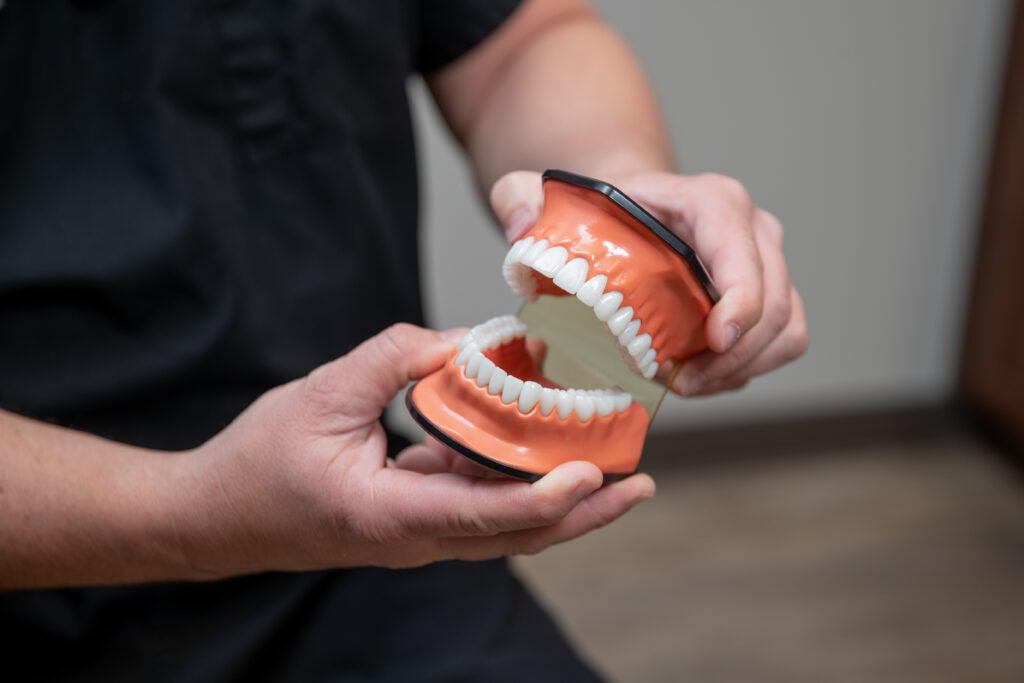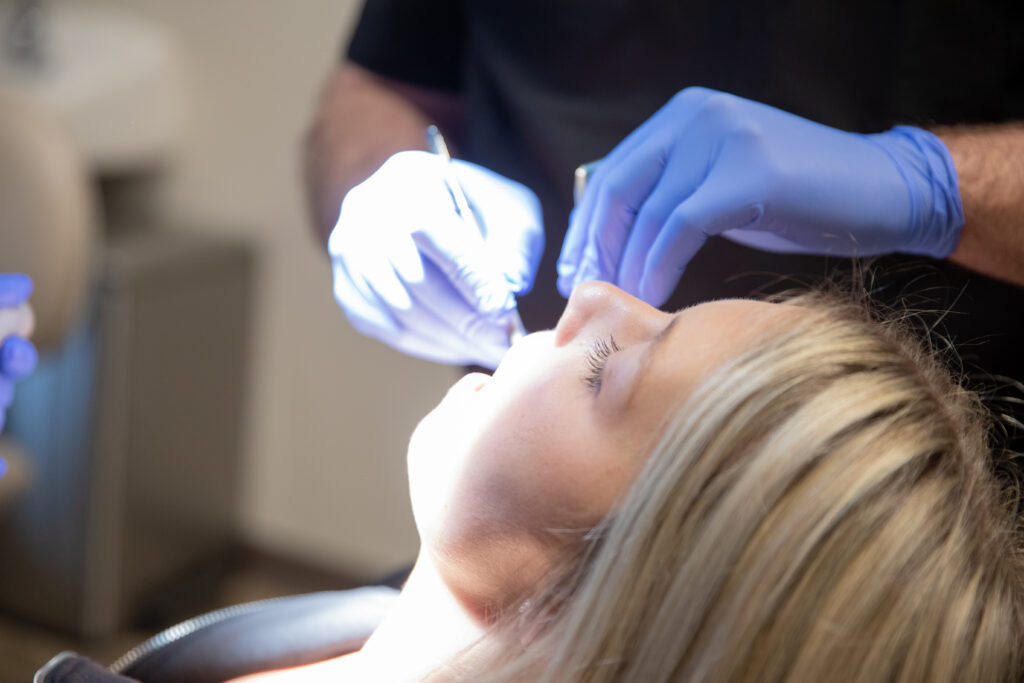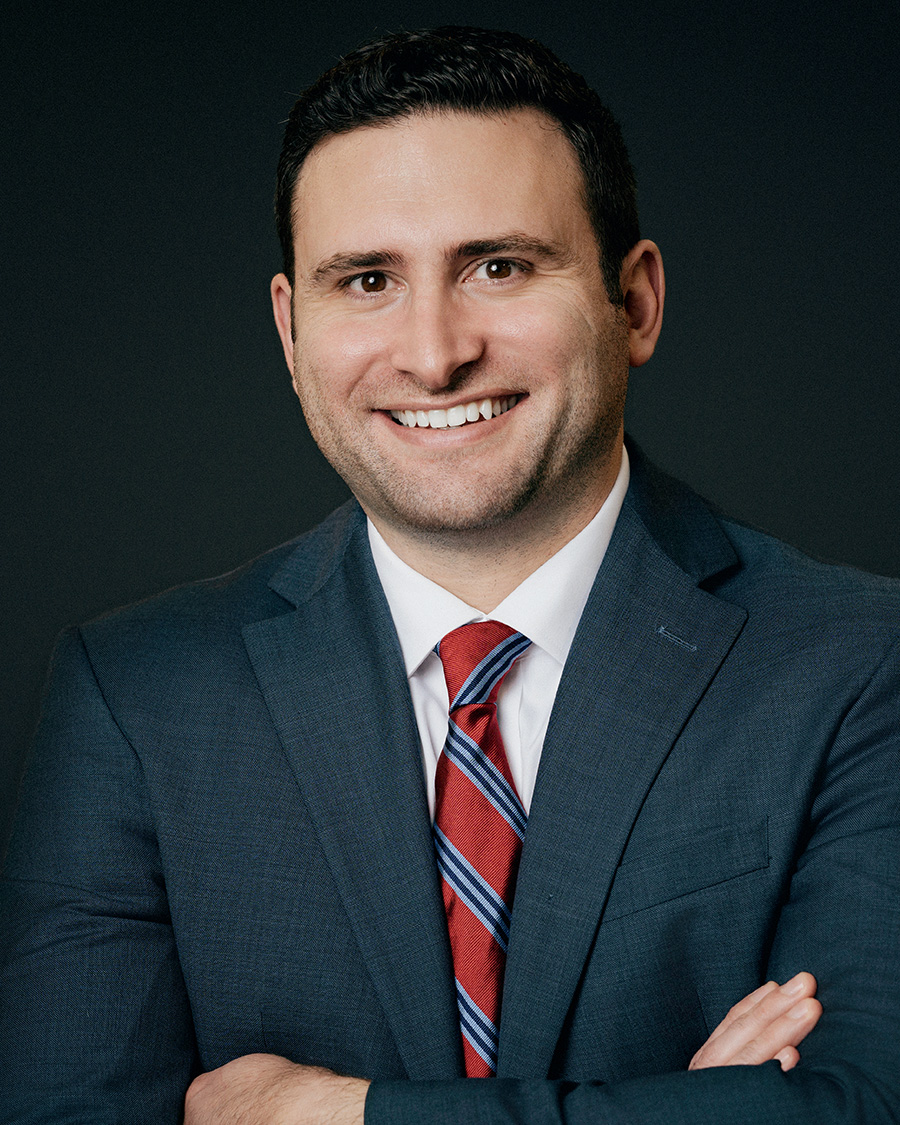Protect your oral health with a tooth extraction
Tooth Extraction
When teeth are impacted, decaying, or broken, they cause discomfort. Your general dentist may try to fix the issue with a filling, crown, or other alternatives. However, if the damage is too severe or potentially hurting surrounding teeth, it may be best to remove the tooth. This is called an extraction.


What you should know.
A tooth extraction is one of the most common dental procedures performed in the United States. Many patients come in to have a tooth removed and leave shortly thereafter. While not the solution for every toothache, there are many valid reasons to have a tooth extracted.
- Crowding of teeth
- Risk of infection
- Decaying teeth
- Effects of severe periodontal disease
- Very loose teeth due to bone loss
- Impacted wisdom teeth (third molars)
Care after a tooth extraction.
While the tooth extraction may be over quickly, the oral care that you follow after your procedure will greatly impact your overall oral health. After a tooth extraction, the surgeon will send you home to recover and will usually provide a prescription for painkillers.
Here are some helpful tips on reducing discomfort, speeding the healing process, and minimizing the risk of infection:
- Change out the gauze every 30 minutes until the bleeding stops.
- When changing the gauze bite down with firm pressure to secure it in place, try not to chew on this or talk while the gauze is in your mouth.
- Take a pain reliever or prescribed medication as directed.
- Do NOT spit or do any mouth rinses within the first 24 hours. If spitting is necessary, take a sip of water and let this fall out of your mouth.
- An icepack will be provided at the end of the procedure. You can shake/pop this, and it will turn cold instantly. Use the icepack for 30 minutes on either side of the cheek, then leave it off for 30 minutes. Repeat this process until pain and swelling reduce.
- Try not to drink through any straws for 3-4 days after the procedure.
- Try not to smoke or vape for at least 5 days following the procedure.
- Your diet will consist of soft foods after the procedure. Continue with this until the areas in your mouth are not as sore. When returning to a regular diet, ease your way into this to avoid trauma to extraction sites.
- Its best to avoid lying flat when sleeping or taking any naps after surgery, try propping your head up with a few pillows.
Get to know us.
At Bloomington Oral Surgery, we know how to help you. Our board-certified surgeons and expert staff can provide the care you need to relieve the discomfort you feel.


